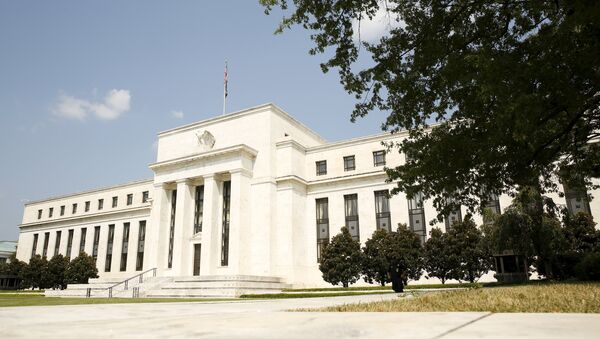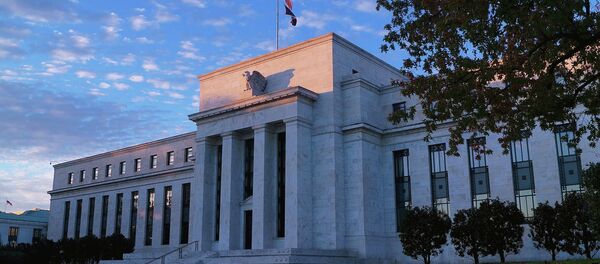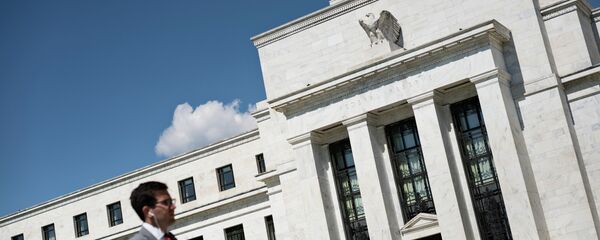Kristian Rouz – The prospect of a rate hike during the November 1-2 Fed policy meeting is not priced in the current open market transactions as few market participants believe a major monetary policy shift is possible just six days ahead of the presidential election.
“I would expect that the case would remain compelling” for a rate hike in November, Cleveland Fed President Loretta Mester told Bloomberg TV earlier this month.
“I don’t think we’re behind the curve,” she added. Yet, “we’ve learned over history that the Fed should be looking ahead and not just waiting.”
US consumer prices advanced their greatest in five months in September, with Labor Department’s Consumer Price Index (CPI) gaining 0.3pc compared to a gain of 0.2pc in August. Annualized CPI now stands at 1.5pc, the quickest pace in inflation recorded since October 2014. Year-to-date increase in prices was 1.1pc in August.
“This is still consistent with a December rate hike and a gradual pace over the next year,” Scott Brown of St. Petersburg, FL-based Raymond James Financial Inc. said.
However, a November hike in rates is a possibility despite the low market expectations of such a move to take place. The rife dissent of the Fed board, as evidenced by the minutes from the September policy meeting, suggests the push for a November hike might be more substantial despite the risks underscored by the upcoming elections.
“Most (regional Fed) directors noted tighter US labor markets across skill levels and different sectors, accompanied by upward pressures on compensation for many categories of workers,” the FOMC minutes read. The majority of regional Fed Presidents favored the hike in September, “in light of actual and expected strengthening in economic activity and labor markets, which should foster a gradual return of inflation to 2 percent over the medium term.”
Yet, albeit the Labor Department’s CPI is among the indicators closely watched by the Fed, the regulator’s main inflation benchmark is the Commerce Department’s personal consumption expenditure index, which has underperformed since April 2012, failing to reach the Fed’s 2pc goal.
According to a Reuters poll, out of 100 economists, the majority believe the broader growth accelerated to 2.6 in 3Q16, despite the underperforming manufacturing and foreign trade challenges.
”We are just beginning to see the first whiffs of upward pressure in prices as labor and product markets tighten,” economist Stephen Stanley of Amherst Pierpont said.
Meanwhile, payroll gains were sluggish at 0.2pc in September month-on-month, whilst inflation-adjusted hourly wages dropped, and the average workweek increased.
However, the Fed has a different view of the ongoing events.
“Most directors noted tighter U.S. labor markets across skill levels and different sectors, accompanied by upward pressures on compensation for many categories of workers,” the FOMC minutes read.
This controversy is further augmented by the lack of clarity regarding the economic impact of the upcoming election results, the ever-weakening global economic outlook, and the self-evident breakdowns in policy transmission to the real economy stateside. This pretty much explains the sustainably rife demand for haven assets among US and international investors.





